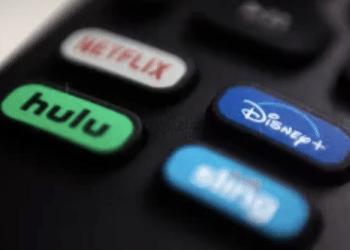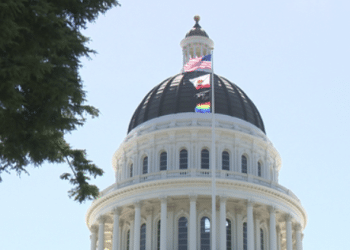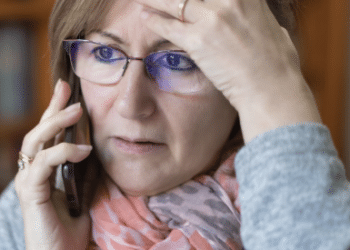Democracies all over the world are being undermined by disinformation and misinformation in relation to elections.
The World Economic Forum (WEF) has identified proliferation of false content in 2025 as the top short-term risk for the second year running. The spread of false information is a greater threat to the global economy, population, and natural resources.
Is the Australian federal election also under threat by misinformation and disinformation? How concerned should we really be?
Fake news is real
The latest study of public trust indicates that Australians are concerned about electoral misinformation.
In March and April, when the election campaign heated up, we surveyed over 7,000 people. At least two thirds of the respondents reported that they had received false or misleading information about elections.
We found that Australians were exposed, whether intentionally (disinformation) of unintentionally (misinformation), to a variety of falsehoods about the election.
-
Issues and Candidates
-
Election procedures
-
Election integrity is a term used to describe alleged rigged results and attacks against the Australian Electoral Commission.
In line with other Australian or International studies on misinformation, people are very concerned about being misled. A large majority (94%) of respondents regarded political misinformation as an issue; more than half considered it a “big” problem or “very serious problem”.
Falsehoods are everywhere
Our team of researchers from four universities examined the types and sources of misinformation about elections that Australians had reported. Nearly two-thirds of Australians (63.1%) have heard falsehoods regarding issues or candidates. For example, they may have been misled about the policy proposals of parties.
Thirty-nine percent reported misinformation/disinformation about voting procedures, such as when and how to vote. Another 38.4% of respondents identified fake content regarding election integrity. This included false claims about rigged elections or the Australian Electoral Commission colluding to benefit political parties.
Uncertainty about misleading content was also expressed by a significant number of people (20-30%). This insecurity is alarming. Unable to assess the accuracy of the information can lead to a lack of knowledge.
This also reflects other studies that show many Australians believe they are unable to verify online information.
The most prominent examples of misinformation/disinformation related to major election issues, such as:
- Medicare
- nuclear energy
- Housing
- Cost of living
- Climate Change
Most people associate misleading information with:
- Donald Trump
- Clive Palmer
- Labor Party
- Liberal Party
It is important to dig deeper into the context and claims made by these individuals who claimed misinformation or disinformation during this campaign. We do know, however, that those who were exposed to false content identified both mainstream daily media and social media as sources.
Is it time to be concerned?
Research in the fields of communication, psychology and political science shows that exposure is not the equivalent of impact. Misinformation and disinformation have the potential to influence attitudes and behavior among vulnerable groups.
The 2023 Voice Referendum was a good example of our own research. We found that disinformation aimed at the Australian Electoral Commission affected public trust in a subtle but noticeable way, despite the fact that trust remained high.
Another global report found that online misinformation can affect perceptions about election fairness.
These findings highlight the need to combat falsehoods. The Electoral Authorities and Political Leaders must protect the democratic trust, and prevent the type of election denialism that led to the Capitol Insurrection on January 6, in the United States.
It’s possible that people don’t always accurately assess how much misinformation and disinformation they have seen. It’s a common problem that we see in our studies. Even if they are not accurate, the mere fact that they feel exposed to misleading or false information is associated with greater political cynicism.
Fighting falsehoods
Thankfully, the majority of Australians are aware of the problem and wish to take action. In our survey 89% of respondents said that it is important to be able to identify it. 83% also agreed that the practice makes separating fact from fiction more difficult for others. Only 69% of respondents felt that false information had an impact on them personally.
False claims made about candidates or election issues make people feel particularly vulnerable (see Figure 1). Australia has no federal regulation of such falsehoods. The AEC is among the most innovative electoral authorities around the world in combating disinformation – even without “truth in Advertising” laws.
We found that the AEC’s multi-pronged approach to combating misleading information is a role model for other countries. The AEC’s tools include the disinformation registry and media partnership. It also has a “Stop and Consider“, which is a campaign that provides voters with clear and accurate information before they share content.
Other encouraging signs were revealed in our own study. People who are satisfied with the Australian democracy see disinformation as a less existential threat. This indicates that a positive outlook towards democracy can help protect democratic institutions.
It is a good reason for non-profits like the Susan McKinnon Foundation, to promote democratic governance. The Scanlon Foundation, with its recent Voices of Australia Podcast series, “Truth, Trust and Politics”, is also making a significant contribution.
Our study shows that fighting misinformation in the electoral process is everyone’s interest.
Andrea Carson received funding from the Australian Research Council to work on this project, led by AJ Brown of Griffith University. DP230101777 – Mapping & Harnessing Public Untrust: Constitutional Values Survey for 2023-2027.
Max Gromping received funding from the Australian Research Council to work on this project, led by AJ Brown of Griffith University. DP230101777 – Mapping & Harnessing Public Untrust: Constitutional Values Survey.








